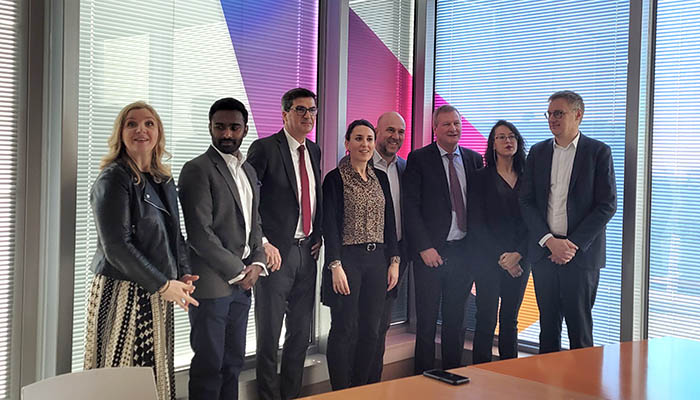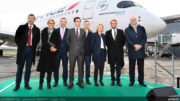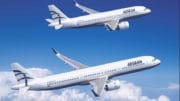Sustainable Aviation Fuel (SAF) could contribute around 65% of the reduction in emissions needed by aviation to reach net zero CO2 emissions by 2050. The challenges to be met is that this will require a massive increase in production in order to meet demand, lower production costs and a comprehensive distribution network on airports.
SAF is a liquid fuel currently used in commercial aviation which reduces CO2 emissions by up to 80%. It can be produced from a number of sources (feedstock) including waste oil and fats, green and municipal waste and non-food crops.It can also be produced synthetically via a process that captures carbon directly from the air.
It is ‘sustainable’ because SAF recycles the CO2 which has been absorbed by the biomass used in the feedstock during the course of its life or recycles carbon removed form air
Each country in Europe is tasked to reduced its carbon footprint and this is often translated in national regulations.
It is then in the interest of all aeronautics actors to decrease their carbon emissions in order to reduce or remove the “fly shaming” and comply with regulations. Some airlines are committing to plant trees to compensate for their emissions. Also many aircraft manufacturers are working for their factories to release less carbon emissions as well as designing and buildingmore environment friendly airplanes. But all these actions are long term and do not meet the target net zero CO2 aviation emissions by 2050
To give a new pulse into a greener world in the aeronautics sector, EasyJet et Airbus have been working on a new incentive scheme, to be first deployed in Toulouse France. For example, a company which needs to reduce its foot print is buying thruEasyjet some SAF to be distributed in Toulouse. Easyjet is then using this SAF for its flights. Both the company and Easyjet, sharing the higher SAF cost vs regular fuel can benefit from CO2 reduction certificate. Easyjet and Airbus initiated this scheme and both expect this move to be followed by many other companies. As adopter, Airbus intends to partially compensate with this scheme its business trips emissions.
The aim of this scheme is to increase the use of SAF, thus lowering current SAF costs being today 3 to 5 times more expensive than regular fuel and developing a SAF distribution network.
Assuming this innovative scheme will be followed by many companies to reduce their carbon emissions (business trips, etc), this Easyjet / Airbus initiative is definitely a step in the right direction and showing the aeronautics sector is serious about their footprint reduction.
Par Nadia Didelot pour AeroMorning








Be the first to comment on "An innovative initiative by Easyjet and Airbus on developing Sustainable Aviation Fuel (SAF)"